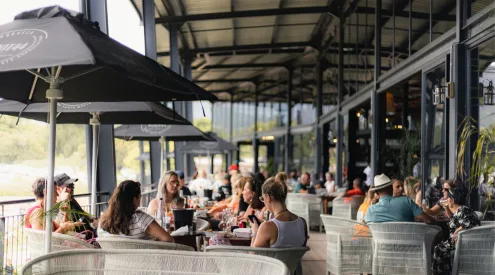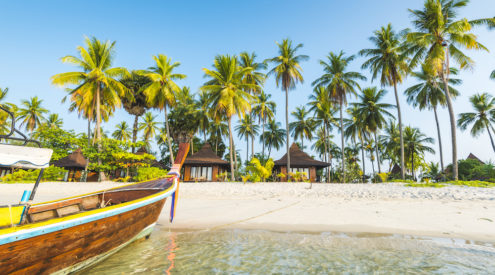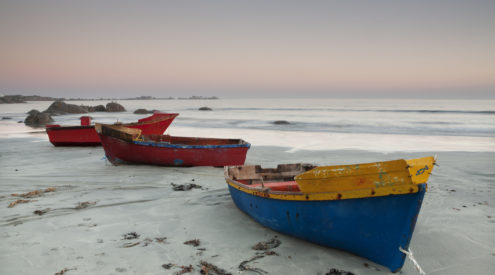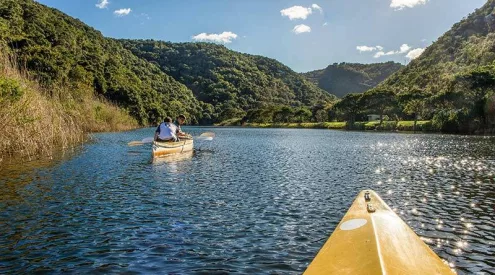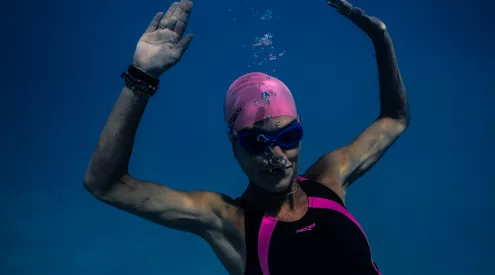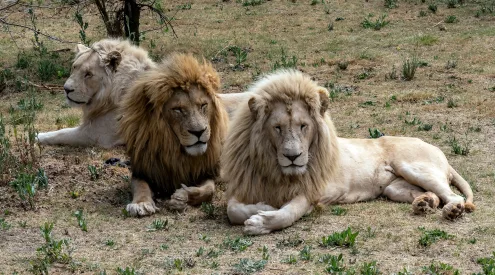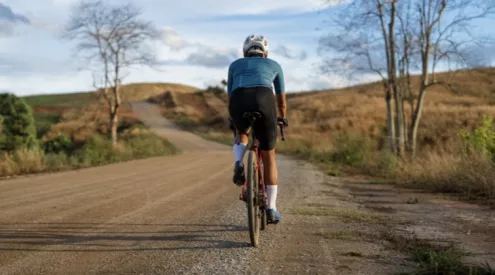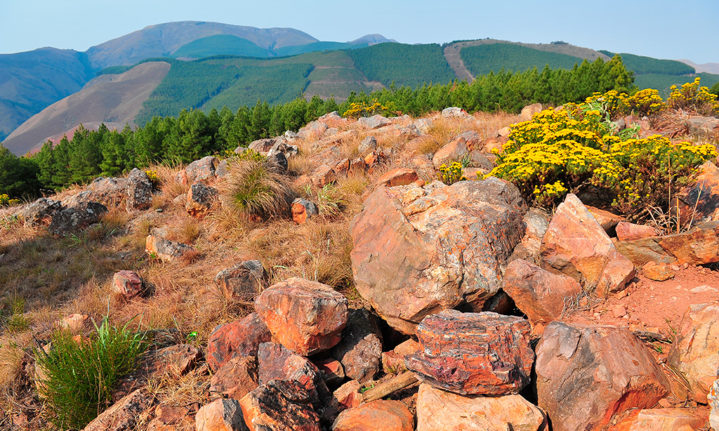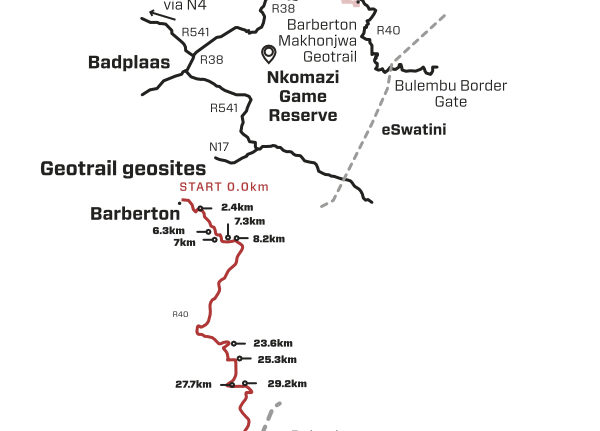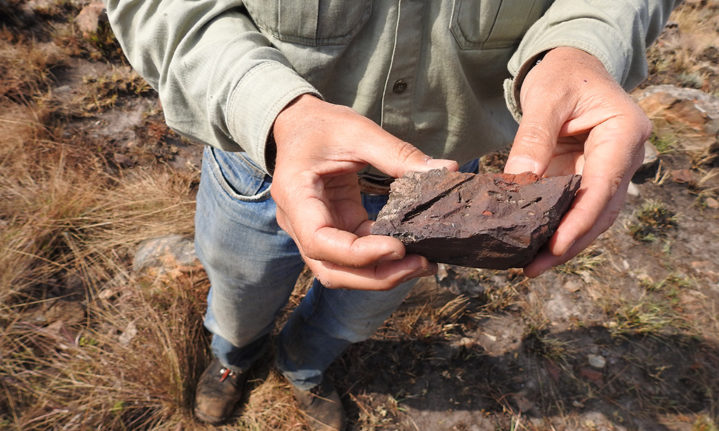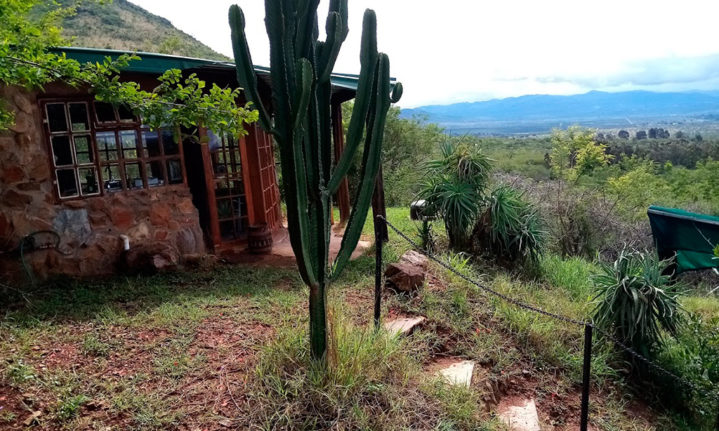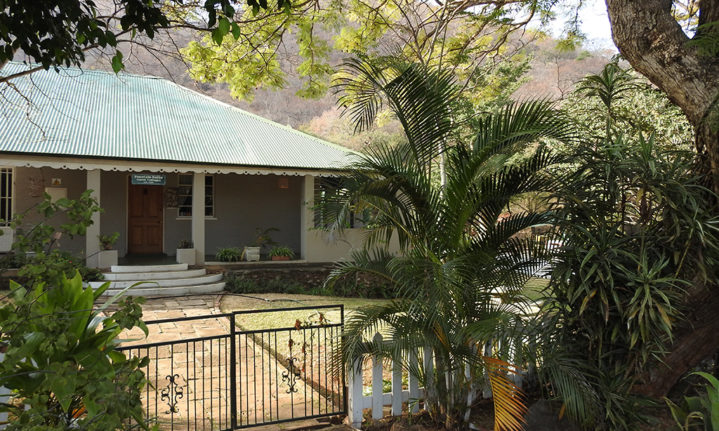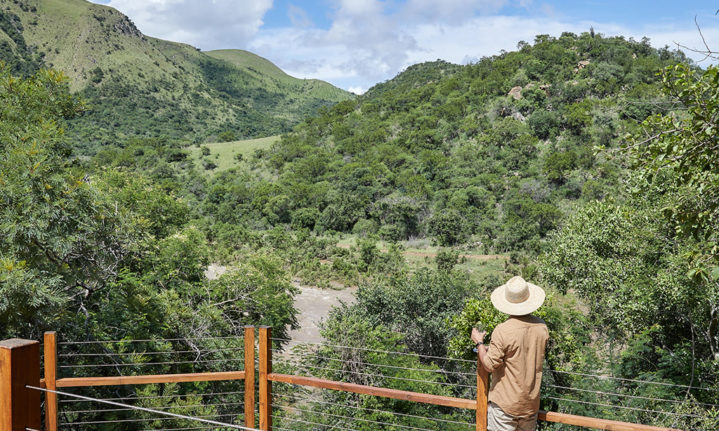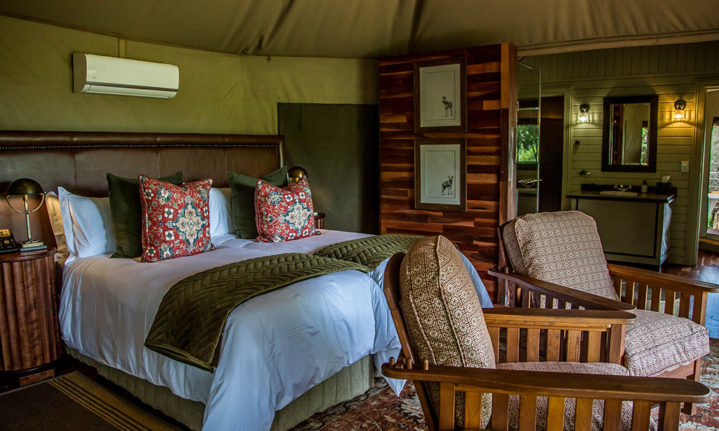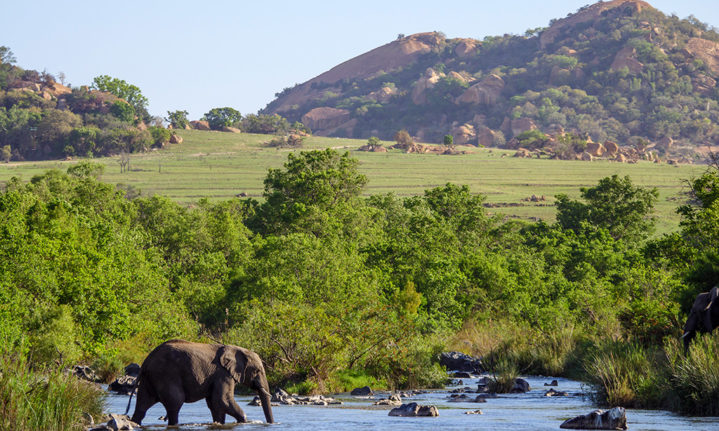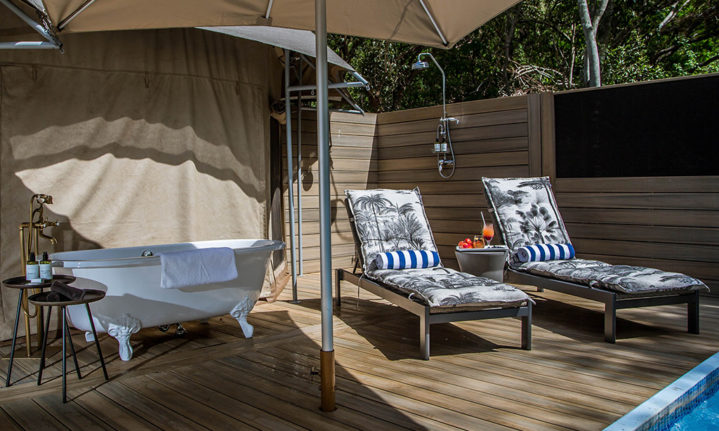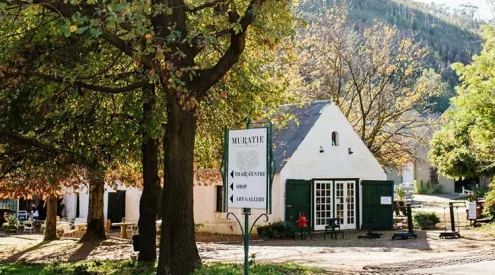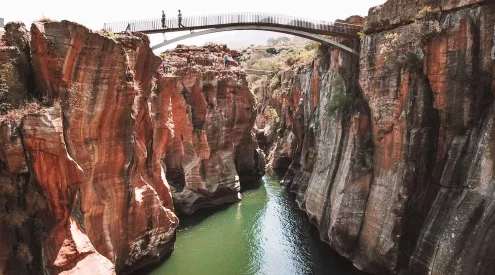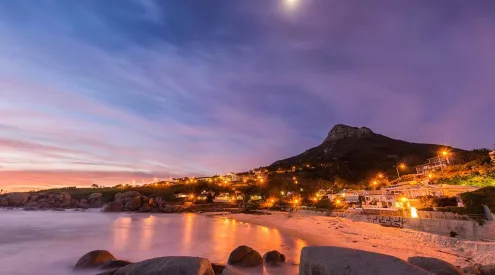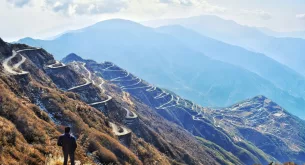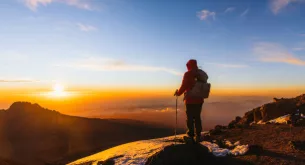We go geological at South Africa’s most recent Unesco World Heritage Site at Barberton; and bring you a first look at a revamped glamping lodge near Badplaas, where Highveld and Lowveld critters hang out happily together.
Words: Lauren Dold | Photography: supplied
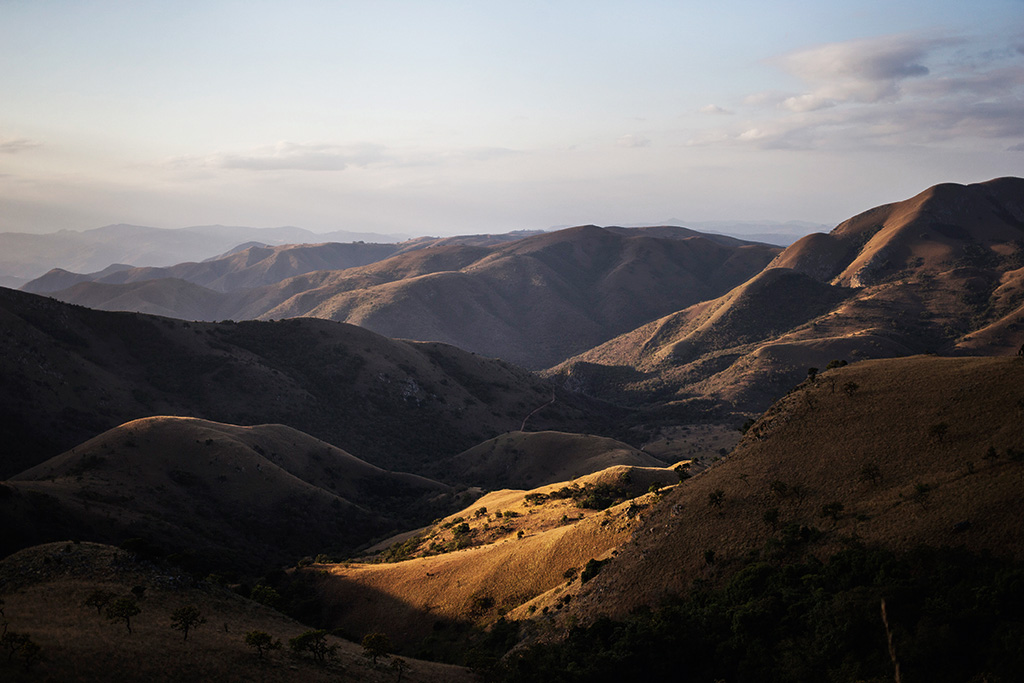
The Barberton Greenstone belt is a geological Mecca, where some of the oldest preserved volcanic and sedimentary rock on Earth can be found.
The Makhonjwa Mountains extend northeast to southwest, creating a gold-laden backdrop to the mining town of Barberton. Though seemingly unassuming, these are some of the world’s oldest surface rocks stretching back some 3.57 billion years to a time when the Earth’s crust began to cool and form land amid the oceans. Now, they also hold the title of South Africa’s 10th and latest Unesco World Heritage Site.
The 37km-long Barberton Makhonjwa Geotrail traces a narrow road that winds its way up the mountainscape from the outskirts of Barberton to the Josefsdal/Bulembu border with the Kingdom of eSwatini. It forms part of Mpumalanga’s Genesis Route that connects Barberton to Badplaas and Low’s Creek. The Geotrail takes you on either a half- or full-day journey, and along the way shows you the earliest signs of life that are visible to the naked eye.
Also read: 5 Campsites near Pretoria for a bushveld experience

The 37km-long Barberton Makhonjwa Geotrail forms part of Mpumalanga’s Genesis Route.
The trail consists of 11 roadside geosites located at stops and panoramic viewpoints along the route, and can be explored on a self-drive with the help of illustrated interpretation panels and a display of labelled rock specimens. But the experience truly comes to life in the company of Tony Ferrar, a wildlife ecologist and private tour guide.
‘The Geotrail relates people to their environment. You can come up into these mountains to learn about the evolution of early Earth and the origins of life,’ says Tony.
Professor Christoph Heubeck, a research scientist from Germany’s Jena University, was in town when I visited, and joined our day-long excursion. Together, he and Tony have penned an illustrated Geotrail guidebook which you can pick up in town before heading off.

A sample of banded iron formation, a sedimentary rock that consists of alternating layers of iron oxides and iron-poor chert.
Once we hit the road it became evident that the region’s exceptional geology supports a biodiversity hotspot where Afromontane forest and montane grasslands rise above savannahs and wetlands. It’s home to around 1 500 plant species, more than 350 bird species and three butterfly species – Barbara’s copper, Jeffery’s blue and Swanepoel’s blue – found nowhere else in the world.
Further along the Geotrail, we stood beneath the Painted Quarry geosite, a towering ochre wall of iron oxide-layered strata. Our guide’s narrative transported us to a period of time geologically known as the Archaean Eon, between two-and-a-half and four billion years ago. The Earth spun faster and days were shorter, while the moon’s closer proximity caused higher and more frequent ocean tides. Volcanic eruptions filled the Earth’s almost oxygen-free atmosphere while asteroids flared across a dim-lit sky before crashing into the iron-rich waters of our then oceanic planet.

Professor Christoph Heubeck (left), a research scientist from Germany’s Jena University, with wildlife ecologist and private tour guide, Tony Ferrar.
It was during this period that the Earth’s first continents were formed, creating shallow-water environments that allowed photosynthetic microbes to evolve. Along these shallow shorelines, with tides and rivers providing endless nutrients, combined with the energy of sunlight, microorganisms began to grow and evolution progressed.
‘I came here to retire, or rather I came here to avoid retirement. I’ve been fairly successful at that,’ says 79-year old Tony as we drop him off. And I can see exactly why he’s chosen Barberton as the place to (not) retire – Iga Motylska
Do it yourself:
The Geotrail is free-to-access and is always open. Pack a picnic basket to enjoy at Greenstone, Volcanic Lapili or Lebombo Makhonjwa. For the full experience, book Tony to guide you. 013 712 2880, 082 959 6670 or email [email protected].

Stay Here
Just 12km from Barberton, the Old Coach Road offers a quiet and affordable weekend getaway. This family-owned guest house is on the site of the old Clutha Hotel, one of many establishments in Barberton which serviced the gold miners during the gold rush days of 1878-1898. The name is derived from the coach road between Barberton and Delagoa Bay (now Maputo Bay), used to transport supplies to the many gold prospectors.
013 719 9755
Oldcoachroad.co.za
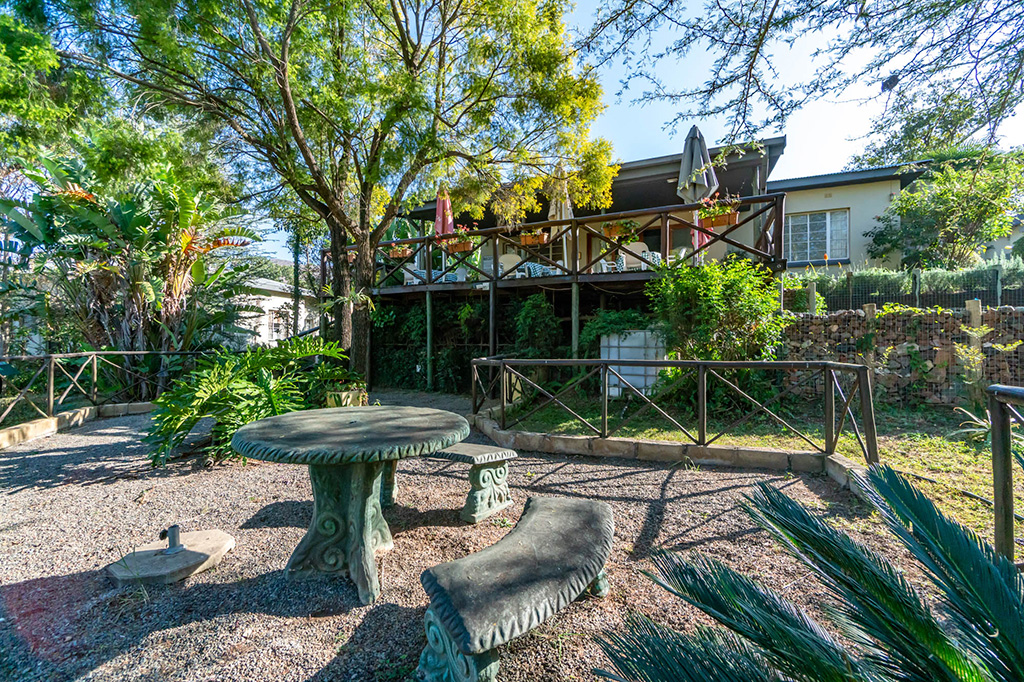
Old Coach Road
With its spectacular views over De Kaap valley, Bushwhacked offers eco-friendly camping with solar showers, harvested rain water, firewood and free-range farm eggs for sale. There is also a guest house fully equipped for self catering, and family chalets. A braai area with views over the valley is available. Hiking trails that begin on the property, offer plenty of birdwatching opportunities.
073 691 5646
bushwhacked-barberton.business.site

Bushwhacked
Fountain Baths on the slopes of the Makhonjwa Mountains, was established in 1884 as a public bathhouse for the gold miners who descended on Barberton from around the world. It was the province’s first public swimming pool. The now-renamed Fountain Baths Guest Cottages, run by Esmari and Nick Harrod, has a swimming pool in the very same spot, and five self catering cottages on the property. Catered meals can be arranged.
013 712 0707
fountainbaths.co.za
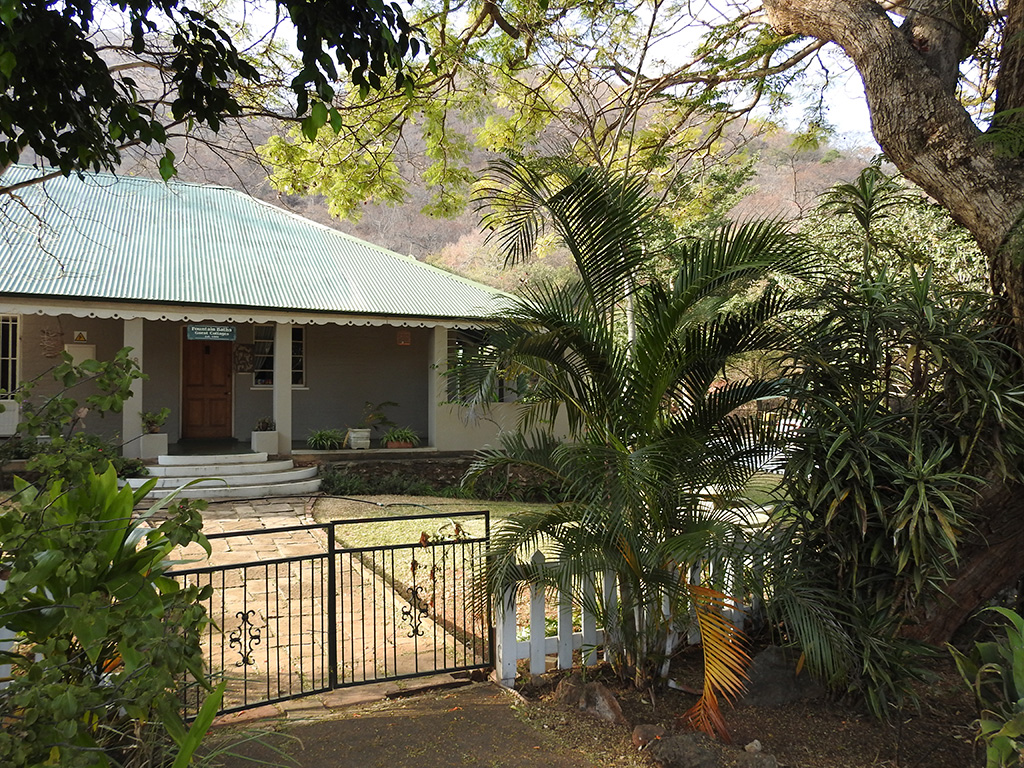
Fountain Baths
A tent on the wild side
Along the banks of the Komati River near Badplaas, 14 luxurious tents sit nestled among riverine trees at Nkomazi Game Reserve. This plush glamping lodge underwent extensive renovations in November last year, with significant upgrades to their permanent safari-style tents.

The private decks with splash pools provide a great spot to sit and birdwatch along the banks of the Komati River.
I arrived at Nkomazi to a cold glass of homemade ice tea on a hot day in January, welcomed by the lodge’s friendly staff. The 10km drive from the gate to the lodge had whetted my appetite, not only for lunch, but for a weekend in the unbelievably green bushveld, vibrant after summer rain. Lunch was served on the main deck overlooking the swiftly flowing Komati River. Two fish eagles perched on a dead branch, scouting the eddying water for their lunch while I enjoyed mine. Then I wandered down to my tent, full, relaxed, and ready for a snooze before the afternoon game drive.
Each tented suite has a softly furnished interior, an ensuite bathroom, writing desk, Wi-Fi and, mercifully, air conditioning. Outside, a private deck, splash pool, claw-footed bathtub and outdoor shower complete the luxurious, private experience. The finer details, from the percale bedding to the Woodbury & Co toiletries, turn a stay here into a true pampering.
Only three and a half hours from Joburg, Nkomazi Game Reserve is a worthwhile getaway for Highvelders and Lowvelders alike. The reserve spans some 15 000ha, on what was once commercial and private farms. While there is still evidence of this, it’s wonderful to see wildlife gradually taking back the bushveld.

Situated on the western limb of the Barberton Greenstone belt, one of the particular attractions at Nkomazi is the geology, found in only a few reserves in the country. Exploring these features means journeying billions of years into the past. For those less geologically-minded, there are over 300 bird species in the reserve, guided walks, catch-and-release fly fishing, tours of old San paintings and, of course, the chance to see big game. For me, it was a highlight on our drives, to see Lowveld animals like impala and more typically Highveld species including blesbok and springbok grazing alongside one another on Nkomazi’s plains.
Back at camp after a morning drive, I spent 45 blissful minutes getting a back massage at the spa. Followed by the delicious prospect of lunch on the dining deck afterwards. The menu at Nkomazi is created by Chef Tafireyi Nyoka who takes pride in serving simple but delicious food. This is no place to visit on a diet, and there’s no such thing as a one-course meal.
021 427 5900
newmarkhotels.com/places/reserves/nkomazi-private-game-reserve/
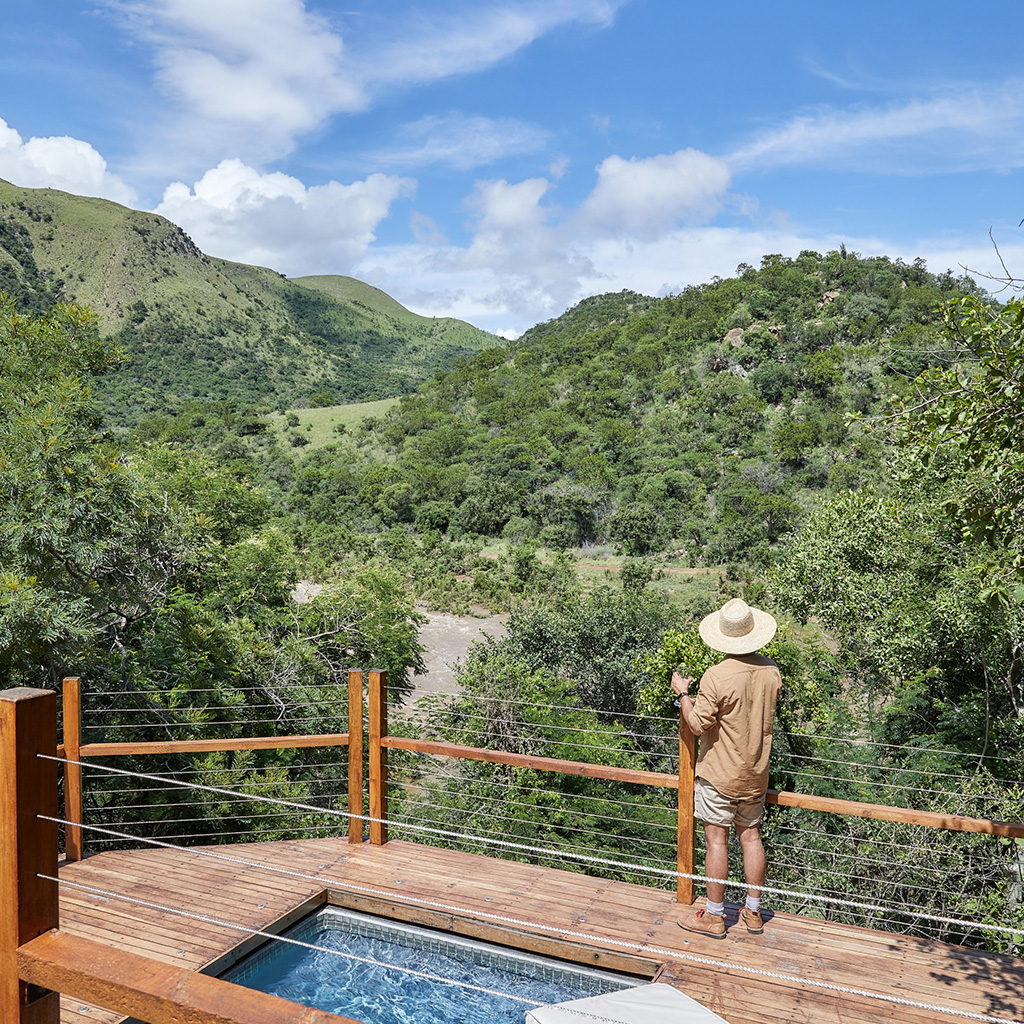
Getting There
Barberton is 350km from Joburg via the N4, R541 and R38. Nkomazi is 310km from Joburg via the N4, R33 and R38 to Badplaas, then a short stint on the R541 to the Nkomazi gate, and a further 10km to the lodge through the reserve – a high-clearance 4×4 is necessary for this drive from the gate to the lodge; guests in other vehicles leave their cars under a carport and are transferred to the lodge.
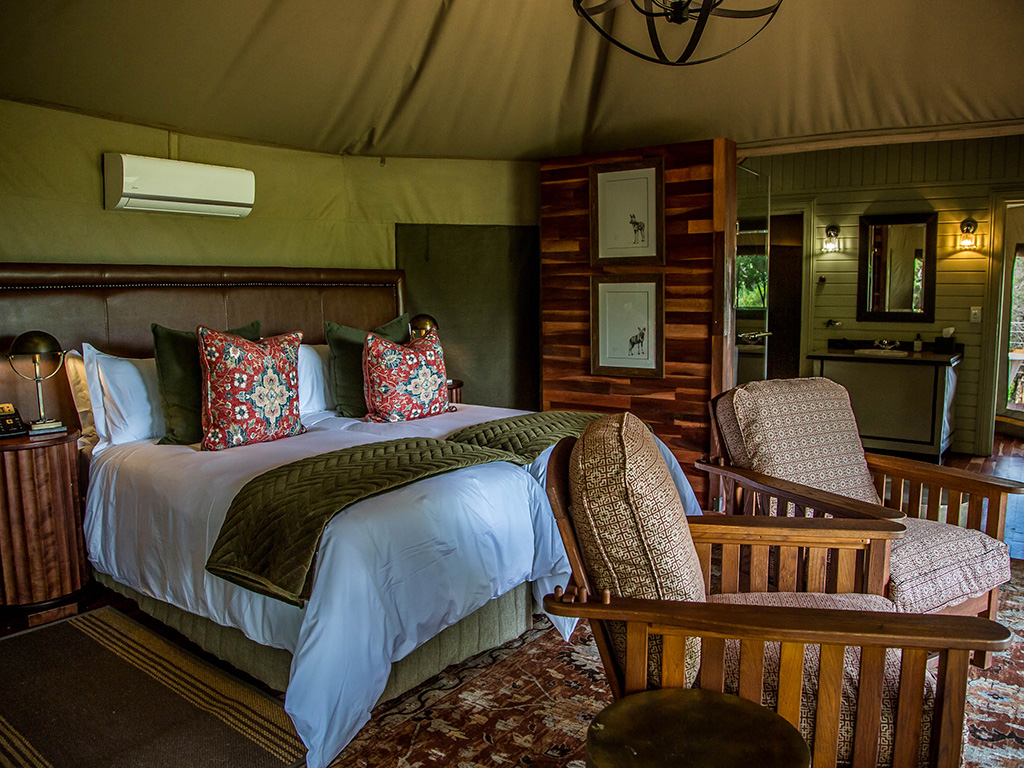
The private decks with splash pools provide a great spot to sit and birdwatch along the banks of the Komati River.

The new environmentally friendly composite decking at Nkomazi is made from repurposed wood and plastic.
Follow us on social media for more travel news, inspiration, and guides. You can also tag us to be featured.
TikTok | Instagram | Facebook | Twitter
ALSO READ: A train through Africa part II: things go further awry


